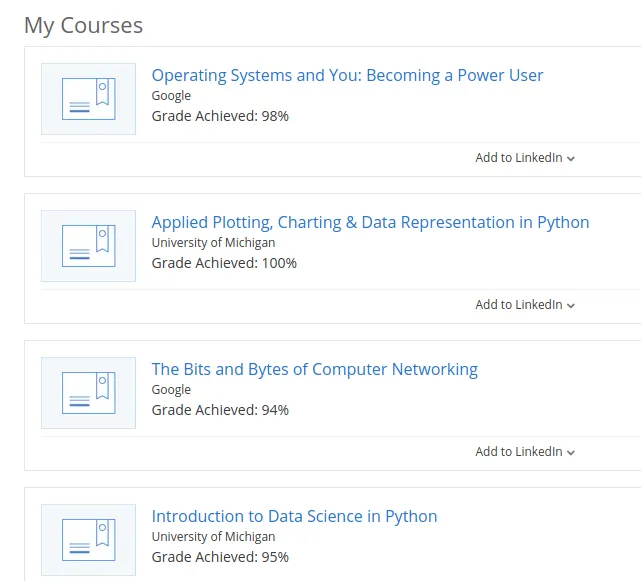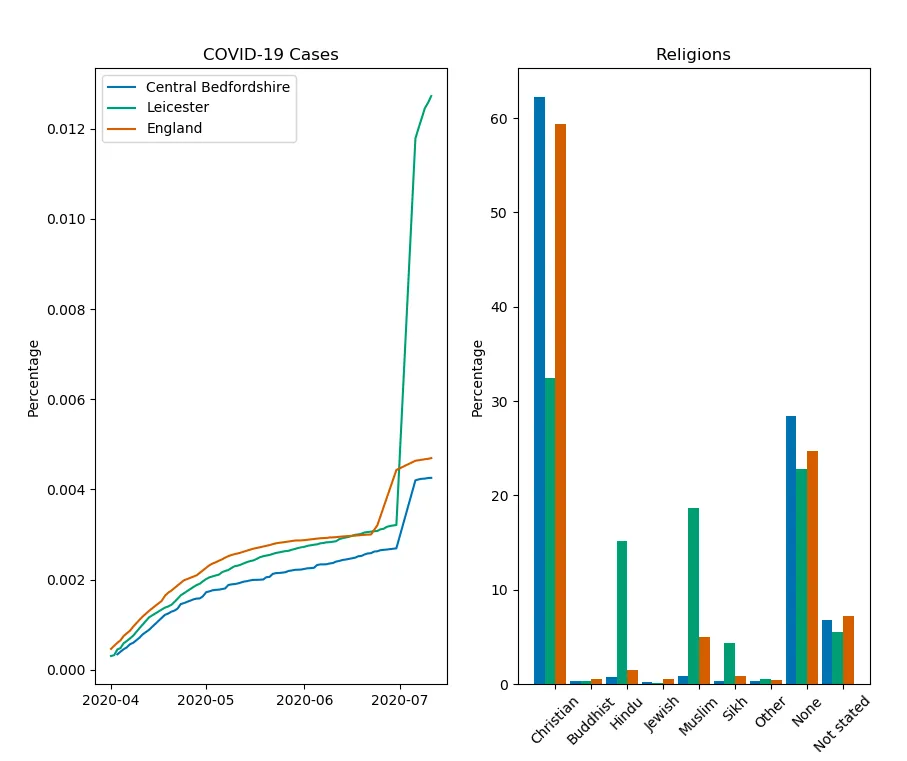Over the last couple of month I have been spending a lot of time at home due to lack of work. I am not one to be watching TV all day and so I have signed up to some online courses to broaden my experience of potentially useful skills.
I opted to use Coursera as I have had good experience of it before. Their courses are mostly produced by academics who teach for a living. They tend to be mostly videos with some extra reading material. You need to pass assessments which can be either automatically assessed or peer-reviewed by other students. It used to be that you could do most courses for free, but it seems you need to pay to get the full benefits. Considering you can take as many courses as you like the fees (£325 per year) seem reasonable. I was fortunate that my employer was willing to pay mine.
I have been doing a couple of courses in parallel. I picked a couple of certificates that comprise multiple courses. The first was for IT support run by Google and the other was on data science from the University of Michigan. I have completed two course from each.

The IT support courses are not too hard. The one on networking gave me a lot more insight into how the various networking layers operate. The Power User course covered Windows and Linux configuration. For the assessments you accessed virtual machines and had to perform some operations on those. You were taken through each step and so they were hard to fail.
The data science courses were much more challenging. I have done a fair bit of Python, but not in this field. The first was on manipulating data in various ways with the Pandas and NumPy libraries. I made use of some other online resources such as these videos to get a better understanding. The plotting course used MatPlotLib, but also got into the aesthetics of visualising data and how that affects understanding. It was peer assessed. That had some issues as it would present the work of other students with very small images that were hard to judge. I have mentioned that to them. I based one of my submissions on COVID-19 data along with statistics I found on religions. Not that I got any great insight from it. It was more an exercise in extracting and processing data.

)
I started a third data science course on machine learning. This is where it gets really heavy and I struggled. I have given up on the course for now as I was not doing well on the tests. I think I need to find an alternative course from this that may explain it better as I found it went too fast for me to take in. I did find it interesting and I think it could apply to future work projects, but you need the right sort of brain for it.
I have started a third Google IT course on system administration. This can be useful when you need to set up systems for the sort of work I do.
As a change from the data science I found one on programming languages from the University of Washington. I did not have a formal education on computer science as my degree was in electrical engineering. Even though I have programmed in various languages I feel I could learn more about the basic principles. The course uses some 'functional' languages which I have not used before. It is part of a set of three courses that could last me a couple of months. The course introduction encourages students to use the GNU Emacs editor. This is something else I have little experience of. I know it inspires devotion and hatred amongst developers. so I am keen to see what it offers. It uses Lisp for scripts, which is something else I have looked into.
I think that we should always be learning through life. I would get bored otherwise.
Stay well and stay sharp!
